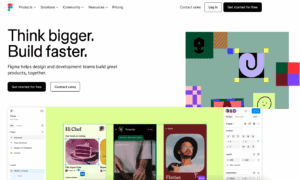Domain Name History – How to Check and How to Stay Safe
Ever been tempted by an available domain name that seems too good to be true? Maybe it’s exactly that – with a hidden history that adversely affects its true value. In this post, domain name expert Joe Uddeme flags up the things to look out for when buying a domain name. Researching domain history is important for businesses and website owners, especially when you wish to buy a premium domain. It’s like wanting to purchase a property and checking the record of its past owners, renovations, and sales history before signing the contract. If you don’t do your due diligence, you might find your dream property was a crime scene six months ago. The same can (kinda) be true of a domain name. You’ve arrived at the right place if you’re interested in digging deep into the history of any domain. This article will give you the relevant knowledge and tools to navigate a domain’s history – and help ensure there are no skeletons in your URL’s closet. Key takeaways Domain history is important – ignore it at your peril A hidden past can help you negotiate a lower price (if you still want it) Discover all the top tips and tools that will help you unearth a domain name’s past Why Would Someone Want To Know A Domain’s History Domain name history is important in several cases, mainly when someone wants to acquire a domain. For example, you come across a domain you want to buy but don’t know the owner. Investigating the domain registration history can help you find the owner so you can begin inquiring about purchasing the domain. These are typical cases that warrant a domain history lookup: Finding A Domain Name’s Owner You might find a domain that looks valuable for your business, but the existing website has no official information to contact the owner. In that case, researching the domain name history can help you find the owner’s email address, phone number, physical address, or other contact information. Conducting Research Before Buying A Domain Due diligence is critical if you’re buying any domain. Checking the domain name ownership history lets you know its reputation with search engines, which can affect your website’s discoverability and brand appeal. This due diligence lets you know if the domain was previously used for any malicious activity, and you can immediately back out if so. Or, if it has certain questionable connotations you can live with and you feel your name/brand is strong enough to survive the domain’s hidden past, you can use its history to negotiate a lower price. Competitive Research Checking a competitor’s domain name history can reveal valuable information. Who registered the domain? How long has the website existed? How much was the domain acquired for? Has the domain ever been sold? These questions give great insight into your competitors, letting you know how to stand out and win customers. Checking A Domain’s History The WHOIS database is the first place to check a domain name’s history. This public database contains the information collected when someone registers a domain name. You can use it to find relevant information about a domain name’s owner and operational history. WHOIS Lookup You can query information from the WHOIS database using any WHOIS lookup tool. This database is publicly available, so many websites allow users to type in a domain name and see every information related to that domain in the WHOIS database. Examples of such tools include WHOIS.com, Who.IS, and WHOIS.DomainTools.com. Type a domain into any of these tools, and you’ll see relevant information about it, including: When the domain was first purchased A WHOIS lookup always shows a domain’s initial registration date. This information gives you a clue of how long the website has existed. To illustrate, let’s perform a WHOIS lookup for NameExperts.com. We typed this domain into the Who.IS lookup tool and got the following information:





